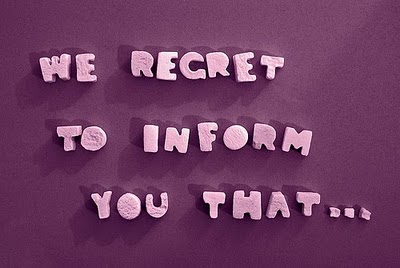Your resume is the first impression a prospective employer gets of you, so ideally everything you want them to know should be presented in clear, open and concise manner. We all know the basic contents of the most important document for a job hunter. But the one phrase which can almost declare the best of CV’s null and void is “References Available on Request”.
Here’s why:
Resumes Should Provide Information in One Go
You’re never the only one being interviewed for a specific job opening so why would you hassle the interviewer with having to “request” more information from you? Nearly every company does a background check and they’re going to need your references to do it. Thus, to make the hiring company’s job easier you should provide all the information they’ll require, increasing your chances of being hired.
Informing your list of references that they may be contacted before going to the interview solidifies your chances of getting a thorough and positive review. Whether it’s email, phone or Skype nobody really likes to be contacted unexpectedly. Giving people a heads up will give them a chance to get some material ready.
As a Prospective New Hire, You Must Approach Proactively
When someone applies to my company I expect them to have done research on the organization. If they come without thoroughly going through the company website I automatically feel like they’re not as interested in the position as someone who has done their homework. The same applies to providing references.
Take an extra step by talking to the references listed in advance and tell them what company and which position you’re applying for. If you’re not yet ready to disclose your interview to your current employer, select references appropriately and inform them of this fact. These days, the job hunting game is extremely fast paced and having a passive attitude could lose you the job of your dreams.
Resumes should be Job Specific
Cover letters and resumes should be company and job specific. The minute someone in HR reads “To Whom It May Concern” they feel slightly snubbed (don’t let anyone tell you otherwise). Since you obviously know the company and position you’re applying for, do yourself a favor and provide references that are relevant to both.
Since you’ll be researching the prospective company, try to present information including the references in a creative but digestible way. For example, many companies are open to an infographic style CV but it may be too non-traditional for others. For the latter, you could use email and phone icons instead of simply writing the words. There are always creative ways to target your audience – you just have to figure them out.
Confidence is key to having a successful interview but having extremely strong feedback from references is just as important. Anyone with interviewing skills is able to filter through genuine and fake references so make sure you’re doing justice to yourself and the prospective organization when providing them. What other traditional terms can you think of on a resume that are now obsolete or redundant? Share your resume best practices in the comments below.
Flickr photo courtesy of Caro Wallis




Paul,
What is your take on the urban legend that providing references of C-level or upper management individuals supposedly gives the impression of being full of yourself? I’ve been always told off from providing quality references owing to this unspoken CV rule.
Thanks!
Hey Agha, thanks for asking. I think it is all to do with relevance.
If you would put a CEO on the list that it is your uncle or you know him through your circle of friends I think you run the risk of being seen as showing off.
However if this individual has directly worked with you and would be able to give a quality reference then I certainly would include him or her. At the end it is all about whether this person can help the recruiting company with making a better hiring decision.
[…] a lot of HR leaders be stuck in the past because they’re bred to follow rules, procedures and SOPs, especially when it comes to […]